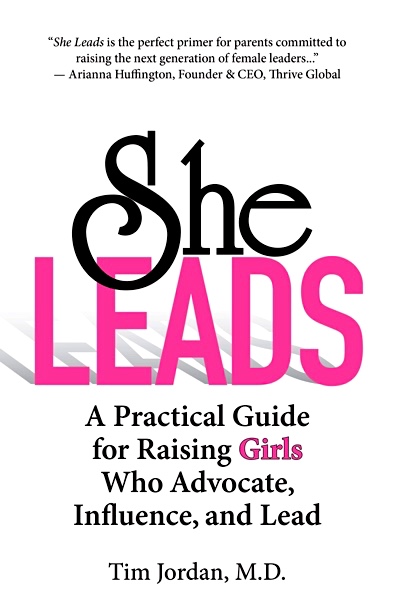Instead of pushing girls to change themselves in order to fit our vision of leaders, perhaps we’d do better to change the way we define leadership. Girls today have to sift through outdated, confusing mixed messages about how to become a powerful leader. Women in the workforce face the unwinnable task of being both assertive and likeable. In her book The Likeability Trap, author Alicia Menendez notes that to rise through the ranks, females must come across as being firm and authoritative but still maintain a warm persona. Yet, assertive women quickly get labeled as bitchy and too much while warm, likeable women get judged as being not tough enough. So, how can we prepare girls for this challenge?
This reminds me of two other outmoded systems we put kids through during childhood: the game of school and the battle for popularity. Kids learn quickly that school is all about following routines, obeying rules, and pursuing superficial rewards. To be successful, students learn to feign interest, only learn what the teacher says will be on the test, please teachers, compete with classmates, put forth only as much effort as is necessary to meet adult’s expectations, and to focus on grades and whatever will look good on college applications. All of this of course stifles most student’s love of learning and self-motivation.
The pursuit of popularity becomes another energy draining game. Playground politics starts in early grade school and intensifies with every year. Girls become externally directed, worrying more about what others think and do than what’s right for them. They focus on looking good, fitting the mold, attaining status even if it means hurting friends, and desperately trying to get into the most popular group. The hallways of middle and high school become unsafe, toxic spaces and we judge girls as being weak and vulnerable and lacking courage.
Alexander Den Heijer had it right when he said; “When a flower doesn’t bloom, you fix the environment in which it grows, not the flower.” Instead of blaming students for a lack of motivation, blow up the school system that is creating the problem. Rather than judge and criticize girls for their friendship issues, schools need to take seriously the need for changing the school culture. I have worked with classrooms of girls for years with my Strong Girls, Strong World school program, and I have seen girls create caring, supportive classroom communities when the school took the problem and social-emotional learning seriously. I believe a similar solution is necessary for the challenges girls and women face with leadership.
The system has been rigged against women forever, so let’s focus on changing the system instead of criticizing females and trying to squish them into an outdated image. Let’s start by redefining how strength and leadership look. Being a strong, effective leader may not look like the cookie-cutter definition we’ve been fed: assertive, commanding, authoritative, loudest voice in the room, CEO. For girls, this can look like: standing up for themselves and others, not allowing words to bother them, setting clear firm boundaries, including everyone, handling conflicts directly, holding peers accountable, getting out of their comfort zone and taking risks, being safe for friends to confide in, focusing on making everyone successful and bringing their classroom community together. For adult women, it can look like being in charge of what success and having it all means for each individual, having a healthy balance of prototypical female and male qualities of leadership, leading from in front or behind the scenes, and accepting authenticity in all it’s forms. As Alicia Menendez states, “To fully empower women to lead, we have to stop asking women to reimagine themselves and instead, encourage everyone to reimagine leadership.”
Girls and women can work to develop qualities that they lack that are limiting them, for example having poor boundaries or lacking the courage to ask for what they want. But that is different than requiring females to perform a leadership model that is not authentic to who she really is. What is required today is changing outdated systems and affirming all of the different ways girls and women exhibit strength and leadership.
Want to learn more about raising strong leaders? Dr. Jordan’s new book: She Leads: A Practical Guide for Raising Girls Who Advocate, Influence, and Leads is here! Look for it in bookstores, Amazon, and any other place books are sold
